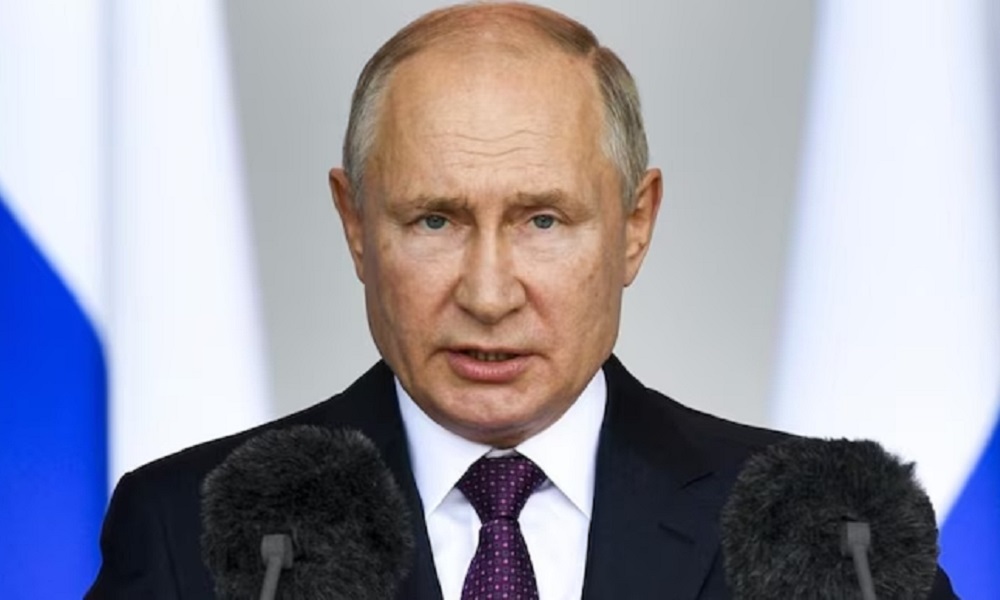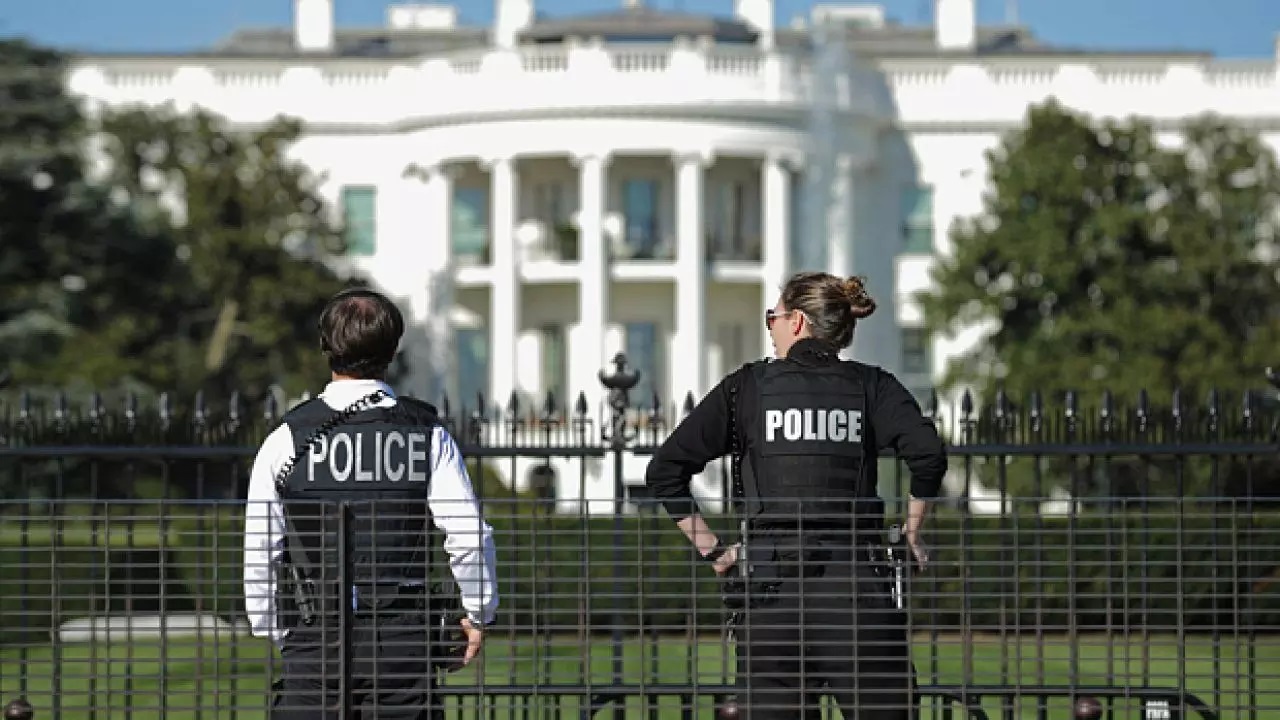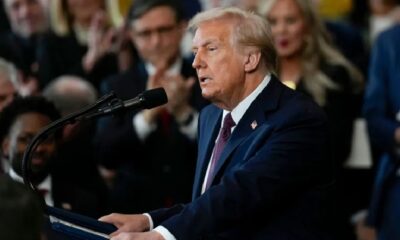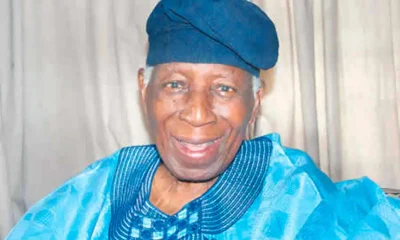Foreign
Putin wins Russian presidential election with 87.97% of the vote

Vladimir Putin was headed for another six-year term as Russian president Sunday, exit polls showed, paving the way for the hardline former spy to become the longest-serving Russian leader in more than 200 years.
Victory for the 71-year-old in the three-day vote was never in doubt, with all his major opponents dead, in prison or exiled, and authorities waging an unrelenting crackdown on those who publicly oppose the Kremlin or its military offensive on Ukraine.
The government-run VTsIOM pollster projected Putin had won the election with 87 percent of the vote after polls closed in Russia’s western-most region of Kaliningrad at 1700 GMT.
The highly-touted election was marked by a surge in deadly Ukrainian bombardments, incursions into Russian territory by pro-Kyiv sabotage groups and vandalism at polling stations.
The Kremlin cast the election as an opportunity for Russians to throw their weight behind the full-scale military operation in Ukraine, where voting is also being staged in Russian-controlled territories.
Kyiv slammed the vote as a sham and President Volodymyr Zelensky denounced Putin as a “dictator” who was “drunk from power”.
“There is no evil he will not commit to prolong his personal power,” Zelensky said in a message on social media.
– Opposition dismisses vote –
Allies of the late Alexei Navalny — Putin’s most prominent rival, who died in an Arctic prison last month — has urged voters to flood polling stations at noon and spoil their ballots for a “Midday Against Putin” protest.
His wife, Yulia Navalnaya, was greeted by supporters with flowers and applause in Berlin. She said she had written her late husband’s name on her ballot after voting at the Russian embassy.
Some voters in Moscow appeared to heed Navalny’s call, telling AFP they had come to honour his memory and show their opposition in the only legal way possible.
“I came to show that there are many of us, that we exist, that we are not some insignificant minority,” said 19-year-old student Artem Minasyan at a polling station in central Moscow.
Leonid Volkov, a senior aide to the late opposition leader who was recently attacked in Lithuania where he fled political persecution in Russia, dismissed the results published by Moscow.
“The percentages drawn for Putin have, of course, not the slightest relation to reality,” Volkov, Navalny’s former chief of staff wrote on social media.
Russia’s foreign ministry spokeswoman, Maria Zakharova, argued the long lines outside embassies abroad were evidence of support for the Kremlin.
“If the people queueing abroad to vote in the Russian presidential election had taken part in the ‘noon’ action, they would have all dispersed after noon. But no,” she wrote on social media.
– Tributes to Navalny –
At Navalny’s grave in a Moscow cemetery, AFP reporters saw spoiled ballot papers with his name scrawled across them on a pile of flowers.
Navalny, who galvanised mass protests, tried to run against Putin in the 2018 presidential election and toured Russia to drum up support, but his candidacy was rejected.
“We live in a country where we will go to jail if we speak our mind. So when I come to moments like this and see a lot of people, I realise that we are not alone,” said 33-year-old Regina.
There were repeated acts of protest in the first days of polling, with a spate of arrests of Russians accused of pouring dye into ballot boxes or arson attacks.
Any public dissent in Russia has been harshly punished since the start of Moscow’s offensive in Ukraine on February 24, 2022 and there were repeated warnings from the authorities against election protests.
The OVD-Info police monitoring group announced that at least 80 people had been detained across nearly 20 cities in Russia for protest actions linked to the elections.
The surge in Ukrainian strikes on Russia continued unabated with the Russian defence ministry reporting at least eight regions attacked overnight and on Sunday morning.
– Fatal border attacks –
Three airports serving the capital briefly suspended operations following the barrage, while a drone attack in the south sparked a fire at an oil refinery.
In Russia’s border city of Belgorod, multiple rounds of shelling killed two — a man and a 16-year-old girl — and wounded 12 more, the region’s governor said Sunday.
The governor has ordered the closure of shopping centres and schools in Belgorod and the surrounding area for two days because of the strikes.
In the Russian-controlled territory of Ukraine’s Zaporizhzhia region, where voting is also taking place, “kamikaze drones” set a polling station ablaze, according to the Moscow-installed authorities.
– ‘Difficult period’ –
Putin, a former KGB agent, has been in power since the last day of 1999 and is set to extend his grip over the country until at least 2030.
If he completes another Kremlin term, he will have stayed in power longer than any Russian leader since Catherine the Great in the 18th century.
In a pre-election address Putin said Russia was going through a “difficult period” and called on the country to be “united and self-confident.”
A concert on Red Square is being staged on Monday to mark 10 years since Russia’s annexation of Ukraine’s Crimea peninsula — an event that is also expected to serve as a victory celebration for Putin.
Foreign
British actor Russell Brand charged with rape, sexual assault

British actor Russell Brand has been charged with rape, indecent assault and sexual assault between 1999 and 2005.
The charges relate to four separate women.
Brand has been interviewed multiple times by police since an investigation by the Sunday Times, the Times and Channel 4’s Dispatches in September 2023 revealed multiple serious allegations against him.
In a new video posted on X this afternoon, Brand said: “What I never was, was a rapist. I’ve never engaged in non-consensual activity.”
He added: “I’m now going to have the opportunity to defend these charges in court and I’m incredibly grateful for that.”
In a short statement, the Metropolitan Police said it had written to Brand to inform him that he was being charged with one allegation of rape, one allegation of indecent assault, one of oral rape and two further counts of sexual assault.
The force said it is alleged that:
In 1999 a woman was raped in the Bournemouth area.
In 2001 a woman was indecently assaulted in the Westminster area of London.
In 2004 a woman was orally raped and sexually assaulted in the Westminster area of London.
Between 2004 and 2005, a woman was sexually assaulted in the Westminster area of London.
Brand has been told to appear at Westminster Magistrates’ Court on 2 May, but he is believed to be in the United States.
In these situations, where a suspect may be overseas, prosecutors seek to agree the defendant’s return. If there is no co-operation from a suspect, authorities then consider seeking extradition.
In February a civil case for “personal injury” and “sexual abuse” was lodged against Brand at the High Court in London by an anonymous woman, referred to in court documents as AGX.
Police investigation
Jaswant Narwal of the Crown Prosecution Service said: “We have today authorised the Metropolitan Police to charge Russell Brand with a number of sexual offences.
“We carefully reviewed the evidence after a police investigation into allegations made following the broadcast of a Channel 4 documentary in September 2023.
“We have concluded that Russell Brand should be charged with offences including rape, sexual assault and indecent assault. These relate to reported non-recent offences between 1999 and 2005, involving four women.
“The Crown Prosecution Service reminds everyone that criminal proceedings are active, and the defendant has the right to a fair trial. It is extremely important that there be no reporting, commentary or sharing of information online which could in any way prejudice these proceedings.”
The Metropolitan Police’s detective superintendent Andy Furphy, who is leading the investigation, said: “The women who have made reports continue to receive support from specially trained officers.
“The Met’s investigation remains open and detectives ask anyone who has been affected by this case, or anyone who has any information, to come forward and speak with police. A dedicated team of investigators is available via email at CIT@met.police.uk.
“Support is also available by contacting the independent charity, Rape Crisis at 24/7 Rape and Sexual Abuse Support Line.”
Brand, who was born in Essex, rose to fame as a stand-up comedian, performing at the Hackney Empire in 2000 and later the Edinburgh Fringe.
He later moved into broadcasting, hosting national television and radio programmes.
The turning point in his career came in the mid-2000s, when he hosted Big Brother’s Big Mouth, a companion show to the hugely popular reality series Big Brother.
It provided the springboard he was looking for and led to him becoming one of the most sought-after presenters in the UK.
Brand went on to host the NME, MTV and Brit awards ceremonies, had his own debate series by E4, and fronted the UK leg of charity concert Live Earth.
But he was never far away from controversy, particularly at awards ceremonies – which provided the kind of live, anything-can-happen chaos where he was most at home.
His career included hosting radio shows on the BBC, in particular for 6 Music and Radio 2, between 2006 and 2008.
But inappropriate phone calls he made to the Fawlty Towers actor Andrew Sachs during a show in 2008 prompted a huge scandal – and ultimately led to his dismissal.
He rebounded with a Hollywood career, starring in films like Forgetting Sarah Marshall and Get Him To The Greek.
Recent years have seen him take a new direction – particularly since the start of the Covid pandemic in 2020.
Brand grew his following on YouTube as he discussed scepticism surrounding the disease.
He has developed a cult following for his views on politics and society, through videos which challenge the mainstream reporting of a range of subjects and often amplify conspiracy theories. He has also established himself as a wellness guru.
Foreign
U.S. prohibits personnel in China from romantic, sexual relationships with Chinese citizens

The U.S. government has banned American government personnel in China, as well as family members and contractors with security clearances, from any romantic or sexual relationships with Chinese citizens, The Associated Press has learned.
Four people with direct knowledge of the matter told the AP about the policy, which was put into effect by departing U.S. Ambassador Nicholas Burns in January shortly before he left China. The people would speak only on condition of anonymity to discuss details of a confidential new directive.
Though some U.S. agencies already had strict rules on such relationships, a blanket “non-fraternization” policy, as it is known, has been unheard of publicly since the Cold War. It’s not uncommon for American diplomats in other countries to date locals and even marry them.
A more limited version of the policy was enacted last summer prohibiting U.S. personnel from “romantic and sexual relations” with Chinese citizens working as guards and other support staff at the U.S. Embassy and five consulates in China. But Burns, the departing ambassador, broadened it to a blanket ban on such relations with any Chinese citizen in China in January, days before President Donald Trump took office. The AP was unable to determine exactly how the policy defined the phrase “romantic or sexual relationship.”
Two of the people with knowledge of the ban told the AP the new policy was first discussed last summer after members of Congress contacted Burns to express concern that restrictions on such relationships were not stringent enough. The House Select Committee on the Chinese Communist Party did not respond to a request for comment.
The new policy covers U.S. missions in mainland China, including the embassy in Beijing and consulates in Guangzhou, Shanghai, Shenyang and Wuhan, as well as the American consulate in the semi-autonomous territory of Hong Kong. It does not apply to U.S. personnel stationed outside China.
The only exception to the policy is U.S. personnel with pre-existing relations with Chinese citizens; they can apply for exemptions. If the exemption is denied, they must end the relationship or leave their position, the people said. Anyone who violates the policy will be ordered to leave China immediately.
The policy was communicated verbally and electronically to American personnel in China in January, but has not been publicly announced.
The State Department said it does not comment on internal matters. The National Security Council referred questions to the State Department. Burns, the former ambassador, did not reply to an AP request sent to his email address at The Cohen Group, a consultancy that he rejoined as vice chair in February.
Intelligence services across the world have long used attractive men and women to obtain sensitive information, famously during the Cold War. The State Department and other agencies with offices in China have long had stringent reporting requirements on personal relationships for American personnel stationed there, as well as rivals considered high intelligence threats such as Russia or Cuba.
Declassified State Department documents show that in 1987, the U.S. government barred personnel stationed in the Soviet bloc and China from befriending, dating or having sex with locals after a U.S. Marine in Moscow was seduced by a Soviet spy. Such restrictions were relaxed after the collapse of the Soviet Union in 1991, according to news reports at the time.
In China, a blanket ban on such relations has not been in effect for many years. Until the new ban in January, U.S. personnel in China were required to report any intimate contact with Chinese citizens to their supervisors, but were not explicitly forbidden from sexual or romantic relationships.
U.S. diplomats and intelligence experts say that Beijing continues to aggressively use so-called honeypots to access American secrets. In presentations before being stationed in China, U.S. personnel are briefed on case studies where Chinese intelligence services sent attractive women to seduce American diplomats, and warned that dozens of Chinese state security agents can be assigned to monitor any individual diplomat of interest.
Little is known about the U.S. government’s non-fraternization policies elsewhere, as they are considered classified. It is unknown how restrictive such policies are in other countries.
In recent years, tensions between Washington and Beijing have escalated over trade, technology and geopolitical competition.
Peter Mattis, a former CIA analyst and president of The Jamestown Foundation, a Washington-based think tank, said there were at least two publicized cases in which Chinese agents seduced American diplomats stationed in China, though he hasn’t heard of such a case in recent years.
Mattis added that another issue is that Chinese state security doesn’t gather intelligence just through spies, but also by pressing ordinary Chinese people for information, often through threats or intimidation. That, Mattis said, means any Chinese citizen who dates an American diplomat could be vulnerable to coercion.
“The MSS is willing to leverage any human connection that a target has to collect intelligence,” Mattis said, using an acronym referring to China’s Ministry of State Security. “This rule change suggests the MSS has gotten a lot more aggressive at trying to access the embassy and U.S. government.”
The Chinese foreign ministry did not comment on the ban, saying in a faxed statement that it was “more appropriate to ask the U.S. about this question.”
China also has been tightening already strict controls on its personnel overseas, according to Chinese regulations, news reports and four people familiar with China’s bureaucracy who spoke on condition of anonymity so they could discuss a sensitive topic. In recent years, Beijing began strictly enforcing regulations that bar promotions for Chinese civil servants with spouses who acquired foreign citizenship and restrict diplomats from spending an extended period of time in one country, forcing some to return to China.
China’s foreign ministry and many other government bodies bar their officials and staff from sexual or romantic relations with foreign citizens, while members of the Chinese military or police are generally barred from leaving China altogether without express approval from their supervisors.
Foreign
Suspicious package found near White House day after Trump imposed tariffs

Law enforcement is currently responding to reports of a suspicious package near the White House.
The area has been secured, and specialized units are on-site to assess the situation.
Authorities are urging the public to avoid the vicinity until further notice.
The section between 15th and 17th streets is completely shut down.
The bomb squad is now examining a suspicious package discovered in a dumpster nearby.
The package was found about 500 meters from the White House. President Donald Trump is currently in residence.
This is coming a day after Trump imposed tariffs on several countries, including US allies.
-

 Politics8 hours ago
Politics8 hours agoTinubu Gives Fani Kayode, Others New Appointments (See Full List)
-

 News8 hours ago
News8 hours agoDANGER! Ex-Soldier Abubakar Affan Vows to Kill VeryDarkMan ‘Like Deborah Samuel’
-

 News23 hours ago
News23 hours agoSecurity Alert: Police alert officers ahead of nationwide protest over living costs, free speech
-

 News11 hours ago
News11 hours agoWhy NYSC maybe extended by FG- Minister
-

 News22 hours ago
News22 hours agoVOA Halts Operations In Nigeria, Others Over President Trump
-

 News11 hours ago
News11 hours agoIbas moves to rehabilitate damaged Rivers LG secretariats
-

 News8 hours ago
News8 hours agoJust in: Ex-Oyo governor, Olunloyo is dead
-

 Economy11 hours ago
Economy11 hours agoCBN allocates $197.71m into FX market to support naira






